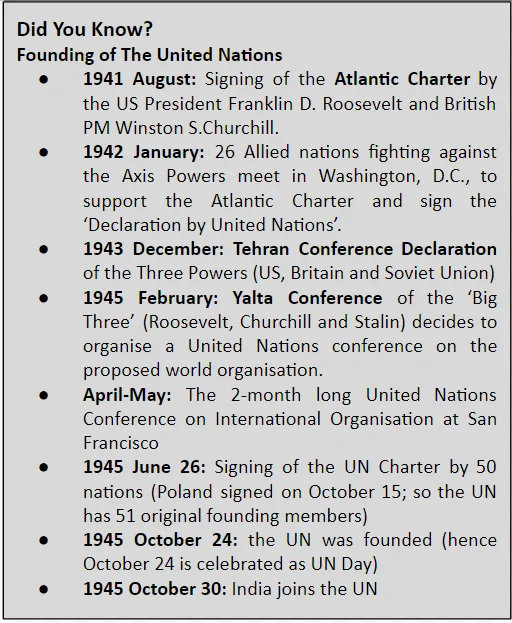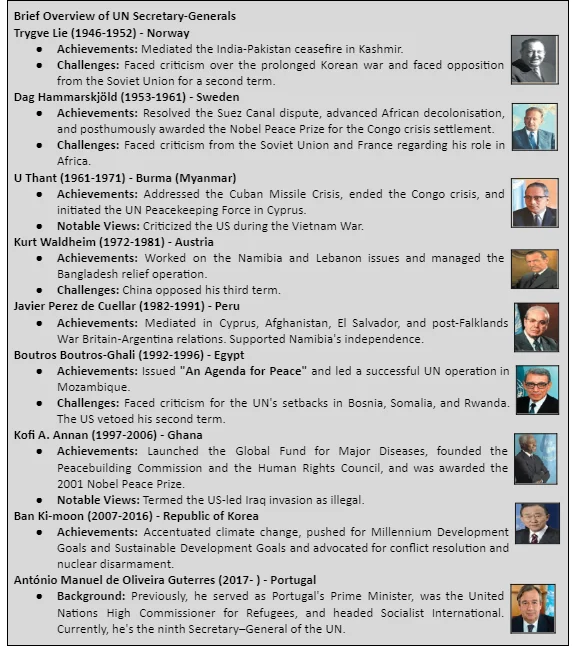![]() 22 Jul 2024
22 Jul 2024
In 1945, following the Second World War, the United Nations was established as a response to shortcomings of the League of Nations. The UN came into being through the endorsement of the United Nations Charter by 51 pioneering states. It aimed not just to prevent the eruption of conflicts into wars, but also to curb spread and intensity of hostilities when they broke out. Another underlying objective was to facilitate global social and economic development, acknowledging that many disputes arose from disparities in these areas.
Global Reach: As of 2011, the UN had embraced 193 member states, essentially encompassing nearly all sovereign nations.
Dag Hammarskjold, the UN’s second Secretary-General: UN’s creation wasn’t to propel humanity to an idealistic realm but rather to prevent global devastation.
A Complex Organization: Beyond its core, the UN is a nexus of diverse structures and agencies, each tailored to address specific global challenges.
|
Main components of UN System |
|
Principal Organs of the UN
|
UN Specialized Agencies
|
UN Funds and Programs
|
|
A Contested Legacy: United Nations (UN) often receives mixed reviews regarding its efficacy, as illustrated in figure 12.1.

The Secretary-General is the face of the UN, serving as its most recognisable figure. As of the latest update, António Guterres is at the helm, having assumed office on 1 January 2017.


UN Department of Peacekeeping: For global harmony, unique idiom-airborne missions have been dispatched, fostering collaboration and peace.
| Must Read | |
| Current Affairs | Editorial Analysis |
| Upsc Notes | Upsc Blogs |
| NCERT Notes | Free Main Answer Writing |
Founded in 1945 due to shortcomings of the League of Nations, United Nations signifies a crucial move towards worldwide collaboration. With 193 countries as members, it advances peace, security, and social advancement through discussions and various organizations such as WHO and UNICEF. Despite obstacles, the UN continues to play a vital role in tackling worldwide problems, such as providing humanitarian assistance and addressing climate change. Its dedication to promoting global communication showcases its position as a source of optimism for the future of mankind.
| Related Articles | |
| PORTUGUESE IN INDIA (1505-1961) | UNITED NATIONS |
| Sustainable Development Goals | Second World War and Nationalistic Response |
<div class="new-fform">
</div>
